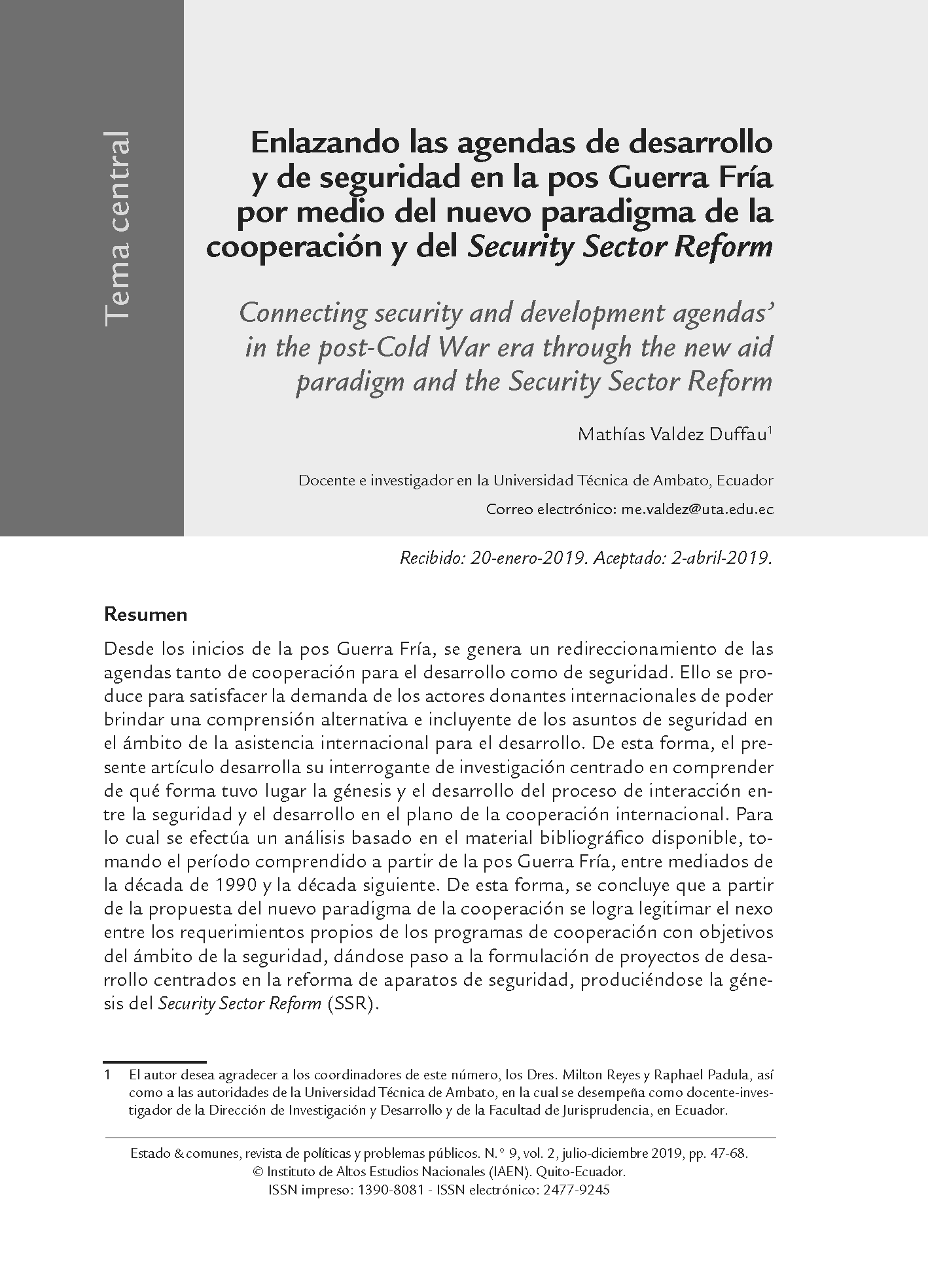Enlazando las agendas de desarrollo y de seguridad en la pos Guerra Fría por medio del nuevo paradigma de la cooperación y del Security Sector Reform
Contenido principal del artículo
Resumen
Desde los inicios de la pos Guerra Fría, se genera un redireccionamiento de las agendas tanto de cooperación para el desarrollo como de seguridad. Ello se produce para satisfacer la demanda de los actores donantes internacionales de poder brindar una comprensión alternativa e incluyente de los asuntos de seguridad en el ámbito de la asistencia internacional para el desarrollo. De esta forma, el presente artículo desarrolla su interrogante de investigación centrado en comprender de qué forma tuvo lugar la génesis y el desarrollo del proceso de interacción entre la seguridad y el desarrollo en el plano de la cooperación internacional. Para lo cual se efectúa un análisis basado en el material bibliográfico disponible, tomando el período comprendido a partir de la pos Guerra Fría, entre mediados de la década de 1990 y la década siguiente. De esta forma, se concluye que a partir de la propuesta del nuevo paradigma de la cooperación se logra legitimar el nexo entre los requerimientos propios de los programas de cooperación con objetivos del ámbito de la seguridad, dándose paso a la formulación de proyectos de desarrollo centrados en la reforma de aparatos de seguridad, produciéndose la génesis del Security Sector Reform (SSR).
Descargas
Detalles del artículo
Cómo citar
Número
Licencia
CC BY-NC-SA. Esta licencia permite compartir, copiar, distribuir, ejecutar y comunicar públicamente la obra, además de hacer obras derivadas.











